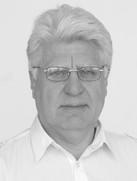Bioenergy rating basics in continuous and interval training models for skilled swimmers
Фотографии:
ˑ:
Dr.Hab., Professor V.R. Solomatin1
Corresponding Member of RAE, Dr.Hab., Professor N.Zh. Bulgakova1
1Russian State University of Physical Education, Sport, Youth and Tourism (GTSOLIFK), Moscow
The study was designed to rate benefits and physiological effects of the continuous and interval training models in competitive swimming, with 10 junior skilled swimmers being subject to the experiment. The swimmers were tested by the continuous and interval swimming practices at the critical (1.6 m/s) and subcritical (1.5 m/s) flow rates in the water tunnel. The training effects in every practice were rated by the gas exchange (oxygen consumption, lung ventilation and non-metabolic CO2 excess) rates). It was found that due to the lower anaerobic shifts (ЕхсСО2) at the subcritical flow rate of 1.5 m/s the continuous swimming practices are more beneficial at such rates as verified by the sample progress in the aerobic capacity and training process efficiency. The swimming practices at the critical flow rate of 1.6 m/s are beneficial for the aerobic and vital capacity in the interval training model that secures somewhat higher anaerobic shifts and is recommended for the target progress in these aspects. The interval training at subcritical speed is recommended for application as a compensatory tool after glycolytiс anaerobic trainings. Immediate training effects of the studied training practices including continuous competitive distance training depends on the individual functionalities of the swimmers. When a priority is given to the anaerobic capacities of the junior swimmers tested with high oxygen consumption and ЕхсСО2 rates, the continuous training model with swimming at the critical and subcritical speeds is recommended. In case of the junior swimmers tested with the low rates, most beneficial is the continuous training model with swimming at the below-critical speeds.
Keywords: junior swimmers, aerobic and anaerobic working capacity, continuous and interval training models.
References
- Bulgakova N.Zh., Yu.L. Voytenko, N.I. Volkov, et al. Bioenergeticheskie kriterii spetsialnoy rabotosposobnosti i normirovanie trenirovochnykh nagruzok yunykh plovtsov [Bioenergetic criteria of special working capacity and dosing of training loads for junior swimmers]. Plavanie [Swimming]. Yearbook. Moscow: Fizkultura i sport publ., 1984, pp. 16-18.
- Bulgakova N.Zh., Solomatin V.R. Fiziologicheskie vozdeystviya nepreryivnogo i intervalnogo plavaniya na organizm yunykh plovtsov [Physiological effects of continuous and interval swimming on junior swimmer’s body]. Plavanie [Swimming]. Moscow: Fizkultura i sport publ., 1981, pp. 49-52.
- Bulgakova N.Zh., Solomatin V.R., Solomatin V.R., Zhuravik A. Srochny trenirovochny effekt i sistematizatsiya spetsialnykh trenirovochnykh uprazhneniy v zavisimosti ot urovnya razvitiya aerobnykh i anaerobnykh vozmozhnostey plovtsov vysokogo klassa [Urgent training effect and organization of special training exercises with regard to aerobic and anaerobic capacities of highly skilled swimmers]. Teoriya i praktika fiz. kultury, 1996, no. 1, pp. 37-39
- Volkov N.I. Nauchnye problemy sportivnoy trenirovki [Scientific problems of sport training]. Problemy konkobezhnogo sporta [Problems of speed skating]. Moscow: Fizkultura i sport publ., 1970, p. 5-36.
- Volkov N.I., Zatsiorskiy V.M. Nekotorye voprosy teorii trenirovochnykh nagruzok [Some matters of training load theory]. Teoriya i praktika fiz. kultury, 1964, no. 6, pp. 20-24.
- Volkov N.I., Stenin B.A. Trenirovka silneyshikh konkobezhtsev mira [Training of world strongest speed skaters]. Moscow: Fizkultura i sport publ., 1970.
- Zatsiorskiy V.M. Fizicheskie kachestva sportsmena [Athlete's physical qualities]. Moscow: Fizkultura i sport publ., 1966.
- Parfenov V.A., Platonov V.N. Trenirovka kvalifitsirovannykh plovtsov [Training of skilled swimmers]. Moscow: Fizkultura i sport publ., 1979.
- Platonov V.N. Spetsialnaya fizicheskaya podgotovka plovtsov vysshikh razryadov [Special physical training of elite swimmers]. Kiev: Zdorovye publ., 1974.



 Журнал "THEORY AND PRACTICE
Журнал "THEORY AND PRACTICE